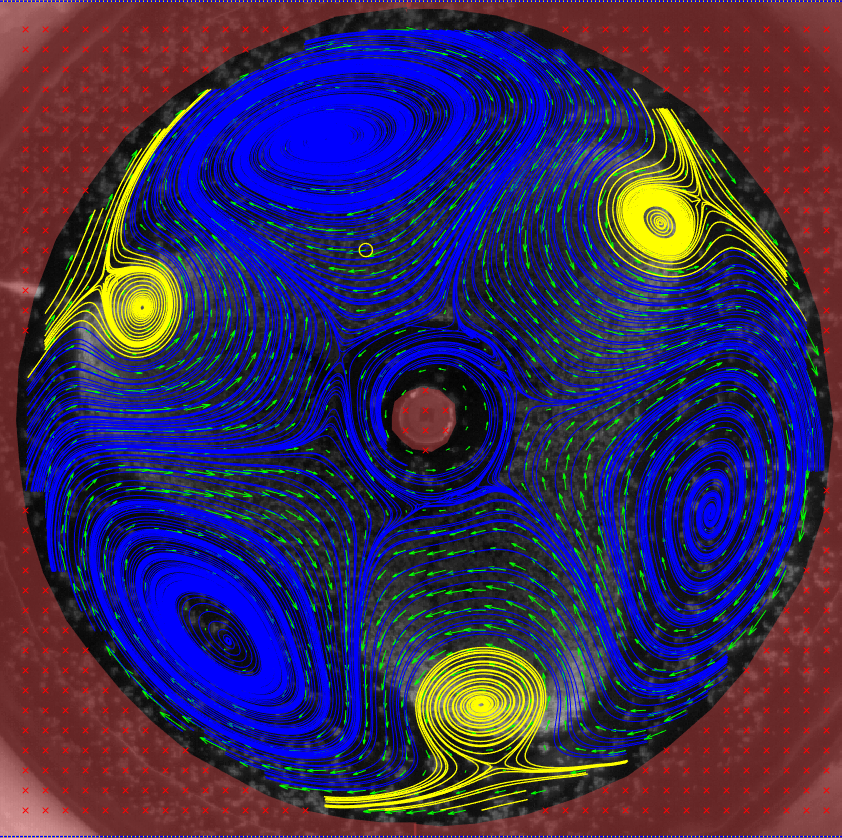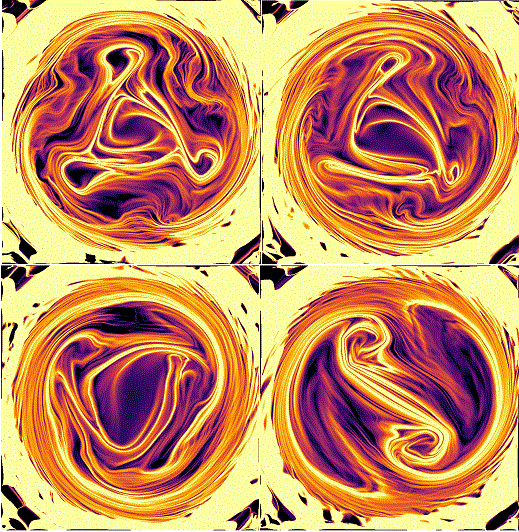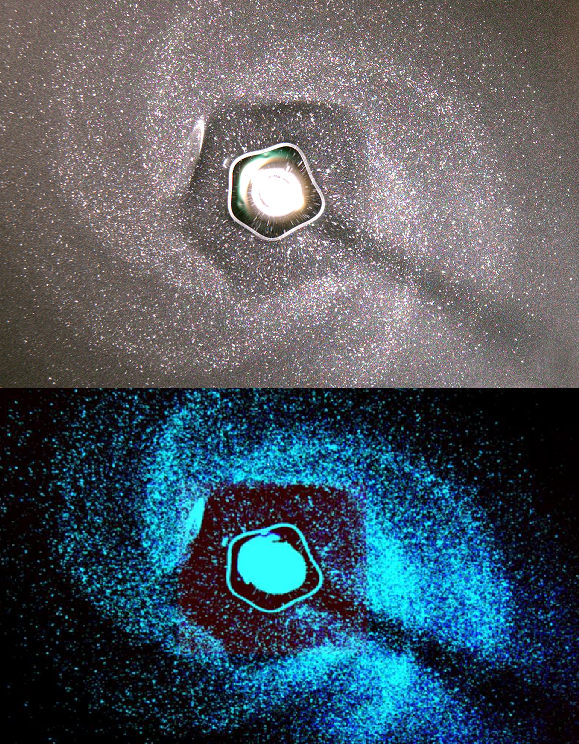- Admissions
- Academics
- Research Office
- Student Life
- News & Events
- Outreach
- About
Dr. Hamid Ait Abderrahmane received his Ph.D. from Concordia University, Montreal, Canada, in 2009. Before joining Khalifa University, he was a Post Doctoral Fellow at McGill University, Canada, and a Post Doctoral Fellow at King Abdullah University of Science and Technology (KAUST), Saudi Arabia.
His research interests are in the areas of the general fields of fluid mechanics, fluid-structure interactions with a particular focus on nonlinear dynamics in fluid-structure interactions, and hydrodynamic instabilities. He also has an interest in data-driven modeling in fluid dynamics. He was awarded two prestigious Postdoctoral Scholarships in Canada and Quebec. His Ph.D. work was honored as one of the top 10 discoveries of the year (2009) by Quebec Science Magazine. In addition, his work on flow visualizations received the prestigious Milton Van Dyke Award, Gallery of Fluid Motion (2010).
Dr. Ait Abderrahmane has published more than 50 research papers in top-notch journals, including Physical review letters, Journal of Fluid Mechanics, Physics of fluids, Physical Review E, and more than 50 papers in international conference proceedings.

Research on point vortices dates back to Lord Kelvin (1878). These are observed in various settings, including in a shallow layer of water above a rotating disk at the bottom of an open stationary cylindrical cavity. We are using spectral analysis, including proper orthogonal and dynamical mode decomposition, to unravel the mechanism of transitions between systems of two and three satellite vortices. The ongoing investigation is on whether or not the flow field induced by the satellite vortices is a fluid-quantum analog problem that a Nonlinear Schrodinger equation can describe.

I am interested in building experimental models for some geophysical flows, such as tornadoes. In this project, I am interested in the mixing during the process of freely attenuating and intensifying a multiple vortex tornado. The model consists of a satellite vortices system within a quasi-two-dimensional rotating shallow layer of water confined to a circular tank. We use finite-time Lyapunov exponent (FTLE) and Poincare map techniques to visualize to mixing process and provide a rational explanation based on dynamical system theory.

I am also interested in resolving the problem of the flatness of the rotational curve of the galaxies through a simple experiment in the lab that mimics the main features of spiral galaxies. The model consists of a hydraulic jump experiment with a highly viscous fluid that produces a rotating polygonal pattern and spiral-like jets.

I am expanding my expertise in data analysis and nonlinear time series analysis to the growing field of Artificial Intelligence (AI) and Machine Learning (ML). I aim to develop a systematic method based on AI and ML approaches to discover physical laws. The approach first consists of identifying the hidden state variables from observational data and, more importantly, from video recordings or measurements of one variable of complex dynamical systems for which we do not know the underlying physics. This approach should discover non-redundant relationships between state variables that allow prediction and control of the systems. I supervise several data-driven modeling projects using reduced modeling methods, such as proper mode decomposition (POD), dynamical mode decomposition (DMD), Koopman-DMD, and an encoder-decoder architecture.
My research focuses on tackling some classical and fundamental fluid dynamics problems encountered in various fields of the natural and physical/engineering world. I have a broad interest in various problems under the umbrella of four fundamental topics: fluid-structure interactions, swirling flows, interfacial flows, and multiphase flows in porous media, using experimental, mathematical, and numerical tools. My research approach involves synthesizing and refining the problem into its canonical form and then iterating between experiment and theory to unravel the hidden dynamics of the physical system and obtain a physical picture of the phenomenon in question. My research is relevant to various applications such as the renewable energy industry (wind turbines, solar), the oil and gas industry (secondary recovery, the transport of heavy oil), the environment (oil-spill cleanup, soil decontamination, urban pollution), the aerospace industry (decay of trailing vortices drag reduction), geophysics (tornados, polar vortices, galaxies) and biomedical industry (tears film breakup, the lining of lung’s airways, digestive system).
Nan